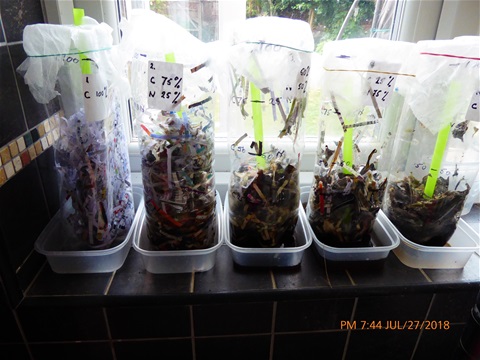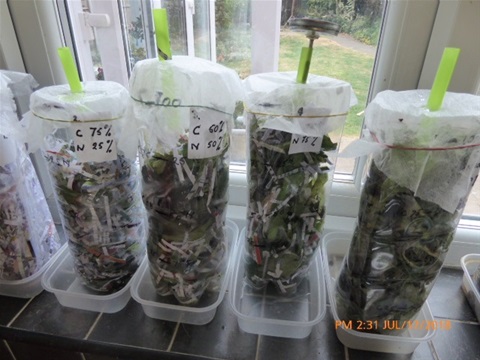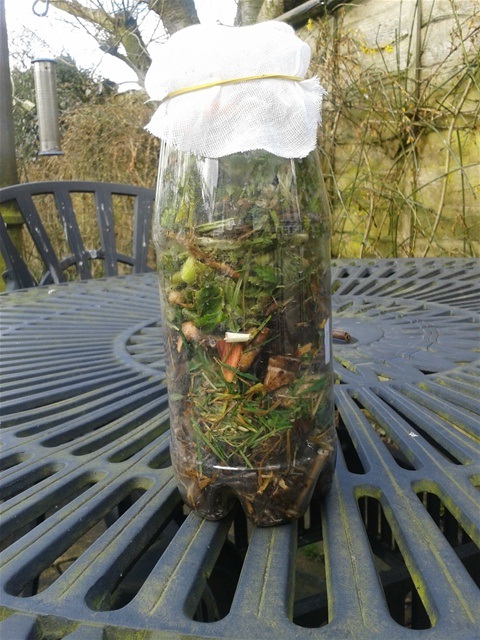Decomposition rates using different ratios of Green and Browns.
Carbon and nitrogen are the most important of the many elements required for microbial decomposition of organic matter to produce compost. The C: N ratio (Carbon:
Nitrogen Ratio) is often referred to in composting books and websites, although less emphasis is placed on calculating the precise ratio of a mix than was once the case. Home composters are now advised to use equal amount of Greens and Browns rather than a
calculated mix to provide an “ideal” C:N ratio of 25-30:1.
This project, using Rotbots, should show the temperature during composting using Greens and Browns, in different proportions and together with observation of the state of the
decomposing material, will show whether the ratio of Greens (nitrogen rich) and Browns (carbon rich) will affect the microbial activity in, and the rate of decomposition of, the organic material in a Rotbot. The temperature should be recorded using a soil
or compost thermometer.
When choosing the materials to use in this exercise it is suggested that, if this is forming part of a class experiment, Greens and Browns with a range of C:N ratios are used by each group to see if materials with
different C:N ratios will react differently


